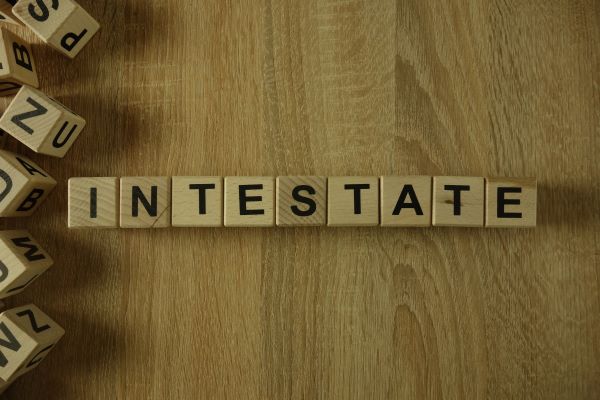How to Handle the Death of a Family Member Without a Will
Published: August 18, 2022
COVID-19 has made Americans more aware of the importance of having a will, a living will, and perhaps even a living trust. Still, this knowledge is not translating into estate planning action. No matter your age or asset level, having a will is beneficial. According to a recent survey, nearly 33 percent of Americans have no estate plan or even a basic will. Therefore it is statistically likely that you have a parent or other family member who will die without a will. What happens if your family member dies without a will?
First of all, what needs to happen somewhat depends on the state where your deceased loved one lived as inheritance law can be community property, common law, elective community property, and a host of other more nuanced rules and regulations. Having your affairs in order ensures inheritable assets will follow your wishes. Still, fully 67 percent of Americans are currently leaving the outcome of their life to the laws of their state should they become incapacitated or die.
Dying Intestate or Without a Will
Dying without a will is known as dying intestate, and the decedent’s state law will determine who inherits your property. This process is known as intestate succession, and without a will, surviving family members will have to abide by decisions made in probate court. If your loved one passes away and you realize there is no will after looking diligently, first contact any lawyer or financial advisor they may have worked with before. There may be an old will on file you didn’t know existed.
Preparing for Probate
No matter how old a will is, it can be probated. Check if there is a safety deposit box in a bank or a safe in their home that may contain the will. Without you listed as the signatory on a bank deposit box, you must adhere to state law to gain access. While some states permit a special petition to gain access, other states will require a full probate petition. A home safe may require a locksmith.
Compile a list of your loved one’s assets, tax returns, and financial statements. Pay particular attention to any financial statements covering the date and month of their death. Asset valuation for probate and estate tax returns hinge on date of death valuations. A significant number of assets pass outside of a will, including:
- Life insurance proceeds
- Funds in a 401(k), IRA, or retirement plan where a beneficiary is named
- Bank accounts, real estate, and other joint tenancy assets with rights of survivorship
- Assets in a payable on death (POD) bank account
- Stocks and securities in a transfer on death (TOD) account
- Vehicles or real estate with a transfer on death (TOD) title document or deed
If you locate the deceased’s information for these account types, you can claim your inheritable assets from the associated institution. These accounts can transfer readily into your name as the beneficiary and give you some extra funds if they are required to finalize the estate.
Executors and Rules of Succession
Other property not addressed in a will or a trust will follow state intestate succession law. State law will list eligible candidates to fill the personal representative (executor) role in the absence of a will. If proceedings in probate court become necessary, the court will make a selection based on the candidate list. Typically, the surviving spouse or a registered domestic partner will be the first choice, followed by adult children, parents, and siblings.
Suppose the probate court judge wants to name you as the personal representative of an estate without a will. In that case, be aware there may be complications in resolving the estate depending on its size, state law, and the complexity of the decedent’s financial situation. An estate of modest value poses far fewer challenges than delving into unfamiliar territory to untangle complex investments and financial structures.
Choosing Whether to Accept the Executor Role and Finding Professional Support
Ask yourself some basic questions before accepting this role. If you are likely to inherit the bulk of the property, you will have a strong incentive to serve as a personal representative. If you are not and you live far away, lack a rapport with other family members, forsee major conflict among heirs, or do not have the time to perform the duties adequately, it is best to decline the executor role.
It is best to consult a probate attorney to identify who inherits assets like the solely owned property with no formally listed beneficiary like a house. Your lawyer can guide you through the state’s intestate succession law to understand who is first in line for such an inheritance. A review of the property and asset information you compile will provide the information your attorney needs to advise what the next steps should be. We hope you found this article helpful. If you have questions or would like to discuss your legal matters, please do not hesitate to contact our office at 215-364-1111 to schedule a consultation.
 Call Today: 215-364-1111
Call Today: 215-364-1111